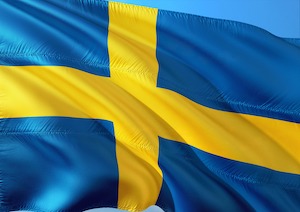A gambling trade body in Sweden has spoken out against plans to increase the country’s gaming tax rate from 18 per cent to 22 per cent.

BOS secretary general Gustaf Hoffstedt said the unlicensed and illegal gaming market in Sweden would “gain market share” if the proposals, set for implementation next July, went ahead.
Hoffstedt tackled what the BOS claims is a disparity in the estimations of the size of the Swedish illegal market between the trade body and the Swedish government, insisting there is a “serious situation” brewing for the licensed market if the tax rate increases.
“The government cites the stability of the gaming market since the 2019 re-regulation and a significant increase in channelling as reasons for proposing the tax hike,” he said.
“This claim, however, lacks supporting data, as the government's memorandum relies on 2021 statistics from Statskontoret. BOS's own report from March 2023 indicates a channelling rate of 77 per cent for all competitive gaming.”
Hoffstedt added that the government’s memorandum supporting the proposed tax hike “not only fails to address the consequences for key societal actors but also presents inadequate analysis.”
He said: “The expected tax revenue increase of SEK539m is presented without consideration for increased costs due to expected gambling addiction resulting from players migrating to unlicensed gaming.
“Additionally, there are no calculations for the extent of lost tax revenues due to decreased channelling and reduced gaming on the licensed market because of higher prices for gaming products.”
The trade body’s secretary general said that while it “generally supports” measures for “maintaining high channelling,” governments can “mistakenly believe” that they can increase taxes without affecting the channelisation rate – which it said experience from its members in Sweden and other jurisdictions shows is a “false assumption.”
BOS notes Spelinspektionen concerns
Hoffstedt also noted that the Swedish Gambling Authority shared its sentiment on the threat to the channelisation rate posed by the proposed tax hike.
Although, Spelinspektionen last week insisted that while it sees “certain difficulties” in “assessing the potential consequences” of the change, it had “no substantive objections” to the increase.
Hoffstedt concluded: “Customers ultimately decide whether gaming occurs on the licensed market. In Western democracies, no countermeasures can prevent the outflow of gaming consumers if they do not find the gaming offerings on the licensed market sufficiently attractive.”

